Open relationships aren’t new, but in many queer communities, they’re often talked about with more honesty, nuance, and intention than in mainstream conversations.

For some queer couples, opening up a relationship isn’t a sign of distance. Instead, it’s an act of trust, clarity, and emotional maturity. When it’s done thoughtfully, it can strengthen connection rather than threaten it. Here’s why open relationships work so well for many queer couples, and how to navigate one with care if you find yourself in one.
1. Queer couples often have fewer assumptions to unlearn.
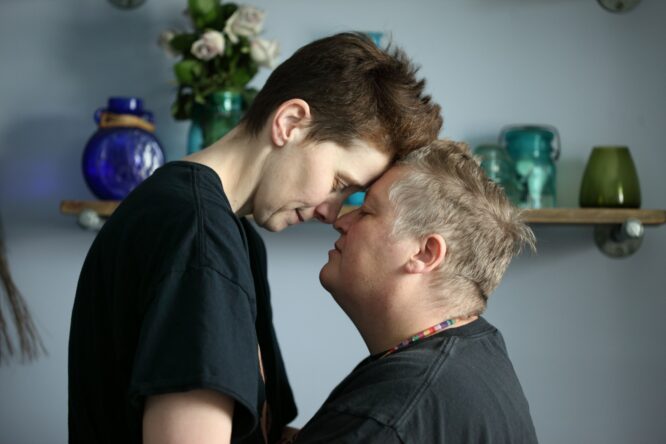
Because queer relationships already break the mould, there’s often less pressure to follow a rigid script. That makes space to define love, commitment, and intimacy on your own terms, not just the ones handed down by tradition. It doesn’t mean it’s easy, but it does mean there’s more room to ask questions and create something that actually fits. For many queer couples, the freedom to do things differently is part of what makes the connection stronger.
2. Communication is already built into many queer relationships.

When your relationship exists outside the status quo, you tend to get good at talking about feelings, boundaries, identity, and what’s working or not. That communication muscle is key when navigating open dynamics. Queer couples who are already used to having vulnerable, honest conversations often find it easier to approach non-monogamy in a grounded way. It’s not just about logistics; it’s about trust and clarity.
3. It allows space for exploring desire without shame.
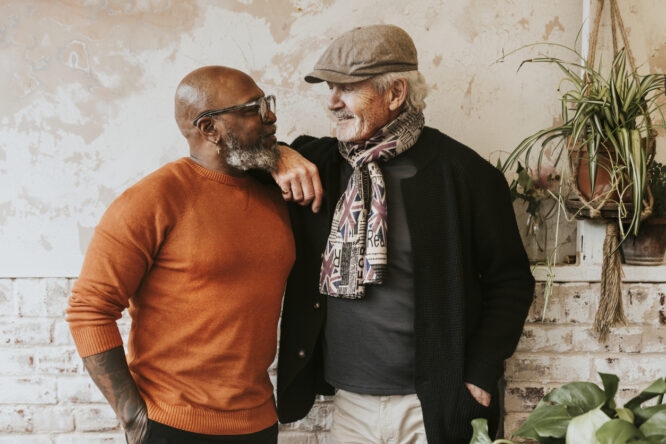
Open relationships can offer a safe, honest way to explore attraction and desire without needing to hide or suppress anything. For queer people who’ve grown up being told their desires are “wrong,” that’s no small thing. It gives space for curiosity and growth within a relationship, not outside or in secret. And when handled with care, it can actually bring people closer rather than creating distance.
4. It pushes you to get really clear about what commitment means.

When you open a relationship, you have to talk about things that many monogamous couples skip, like what security looks like, what honesty means, and how you both define love. That level of clarity doesn’t weaken the relationship; it deepens it. It takes the guesswork out of what you’re building together and puts intention right at the heart of it.
5. It helps honour individuality inside partnership.
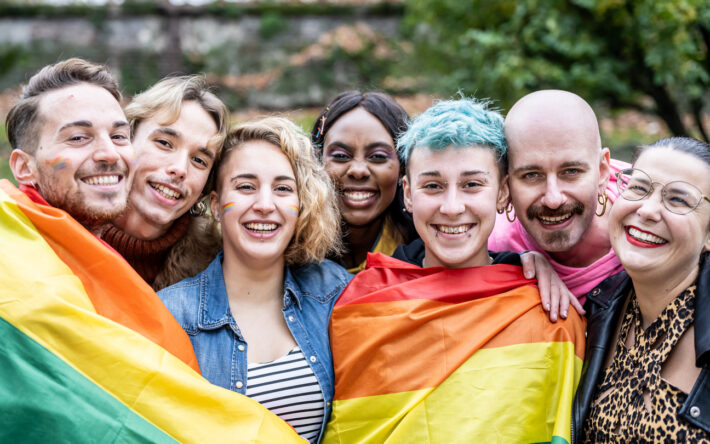
Open relationships acknowledge that one person doesn’t have to meet every emotional, sexual, or spiritual need, and that doesn’t mean they’re not enough. It’s a move from ownership to autonomy. For many queer couples, especially those already used to challenging norms, that idea feels not only natural but freeing. It allows both people to be whole, independent beings while still being deeply connected.
6. It reduces the pressure of needing your partner to be everything.
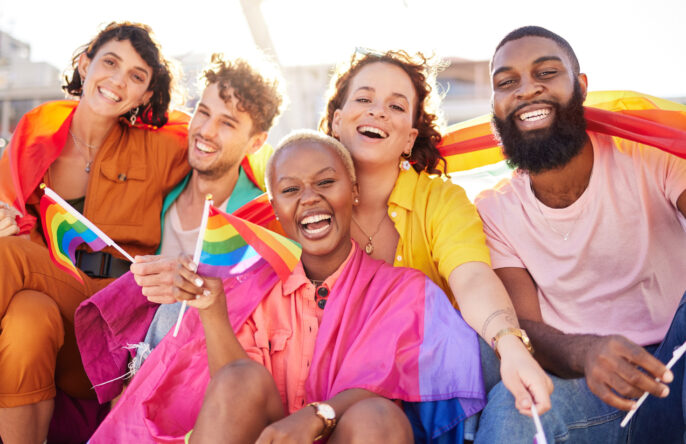
Monogamy often gets tangled up in the idea that your partner should be your best friend, your therapist, your sexual ideal, and your life manager all in one. That’s a lot for anyone to carry. When the relationship is open, some of that pressure can ease. There’s room for outside connection without guilt, and your partnership becomes more about choice than obligation.
7. It encourages continuous check-ins and emotional honesty.

Open relationships don’t work without consistent, honest conversations. That’s not a downside; it’s a strength. It means you’re not drifting along assuming you’re still on the same page. You’re actually checking. This keeps the emotional bond strong. Even when things get messy or uncomfortable, the ongoing dialogue helps you grow, both individually and together.
8. It reflects a more fluid and realistic view of desire.
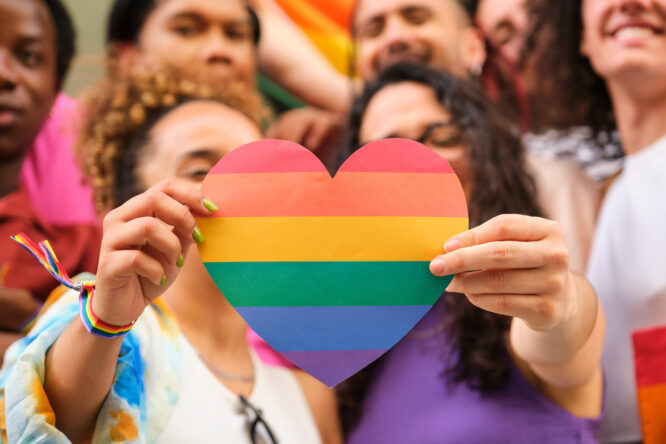
Attraction changes. Life changes. Queer people often know this firsthand, having navigated identity shifts or unexpected emotional experiences. Open relationships make room for that without turning it into a threat. It acknowledges that love and desire don’t always live in the same container, and that’s okay. Being open to those truths makes a relationship feel more honest, not less committed.
9. It’s not about “fixing” the relationship, it’s about expanding it.
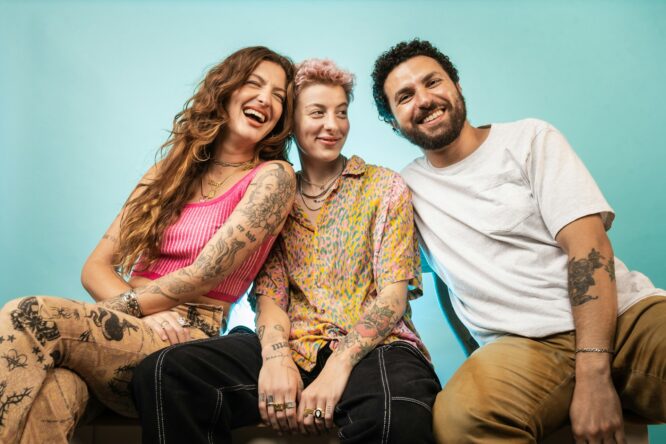
There’s a stereotype that people only open up a relationship when things are falling apart. But in many queer relationships, it’s the opposite. The bond is strong, and the openness is an extension of that strength. It’s about choosing to grow together in ways that honour both partners’ needs. When it’s approached with love, openness can feel like expansion, not escape.
10. It creates opportunities for deep self-awareness.

Opening a relationship forces you to confront jealousy, insecurity, comparison—all the things that quietly show up even in monogamy. But instead of pretending they’re not there, you name them and work through them together. So much emotional honesty builds resilience. You start to understand what you actually want, what triggers you, and how to take care of yourself without blaming your partner for every wobble.
11. It’s rooted in mutual agreement, not assumption.

Open relationships only work when both people are on board, and that consent-based approach sets the tone for everything. You can’t assume your partner’s on the same page; you talk about it, often and clearly. An explicit agreement about rules, limits, feelings, and safety becomes a shared foundation. It’s not just about freedom. It’s about being intentional with that freedom together.
12. It challenges the idea that jealousy is proof of love.

In many traditional relationships, jealousy gets romanticised, as if it means you care more. However, in open dynamics, jealousy is treated as a signal to explore, not a weapon to justify control. That change is powerful. It allows you to build love around trust, not fear. And it teaches you to sit with discomfort without turning it into drama or blame.
13. Queer community often offers more support for non-monogamy.

In queer spaces, non-monogamy isn’t as taboo or secretive as it might be in more traditional circles. There are role models, community discussions, and language for what you’re exploring. That support matters because it helps you feel less alone, and it gives you the tools to build a relationship that’s actually sustainable, not just experimental. It makes open love feel possible, not just theoretical.
14. There’s no one “right” way to do it.

One of the strengths of open queer relationships is how personalised they are. Some people date separately, others together. Some keep things sexual, others emotional. There’s no template, just what works for you. That flexibility lets you build a relationship that fits both of you, rather than squeezing into a one-size-fits-all model. That freedom can be incredibly empowering once you realise there’s no script you have to follow.
15. At the heart of it, it’s about radical trust.

Open relationships aren’t easy, but they’re rooted in trust, not just in each other, but in your ability to navigate complex emotions without breaking. That kind of trust can feel vulnerable, but it’s also deeply bonding. When two people trust each other enough to move through uncertainty with care, it creates a love that’s flexible, honest, and strong. It’s not the absence of difficulty; it’s the presence of commitment, even in the messiness.




